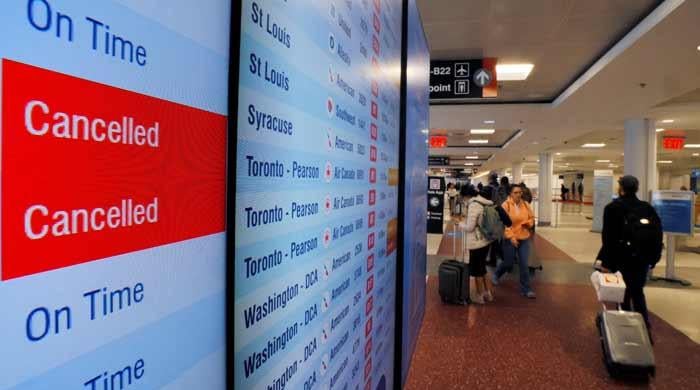Airlines cancelled nearly 1,200 flights on Tuesday, the fifth consecutive day they have topped 1,000 since the government imposed mandatory flight reductions to address safety concerns.
Last week, the Federal Aviation Administration instructed airlines to cut 4% of daily flights starting on Friday, November 7, at 40 major airports because of air traffic control staffing issues. Reductions in flights rose to 6% on Tuesday.
Flight reductions were set to hit 8% on Thursday and 10% on Friday, November 14. Airlines and the FAA are in discussions about when and how the cuts will be reduced and eventually eliminated as a record-setting 42-day government shutdown nears an end.
There are a number of different options being discussed for how the FAA might end or shrink the flight cuts, sources told Reuters.
On Monday night, the Senate voted to approve legislation to end the shutdown and fund the government through January 30. The House is set to take it up on Wednesday.
Air traffic absences have led to tens of thousands of flight cancellations and delays since Oct. 1 when the shutdown began. Over the weekend, 1.2 million passengers were delayed or had flight cancellations due to air traffic controller absences.
Airlines also delayed more than 1,300 flights on Tuesday after cancelling 2,900 Monday and delaying 9,600, according to FlightAware, a flight tracking site.
Air traffic control staffing shortages improved dramatically on Tuesday after more than two dozen issues on Monday, airline officials told Reuters. The FAA said there was just one staffing issue reported Tuesday.
On Monday, President Donald Trump threatened to dock the pay of any controller who did not return to work and would welcome the resignations of workers who were not diligent in showing up for work.
The shutdown, the longest in US history, has forced 13,000 air traffic controllers and 50,000 Transportation Security Administration agents to work without pay.
The FAA is about 3,500 air traffic controllers short of targeted staffing levels. Many had been working mandatory overtime and six-day weeks even before the shutdown.


